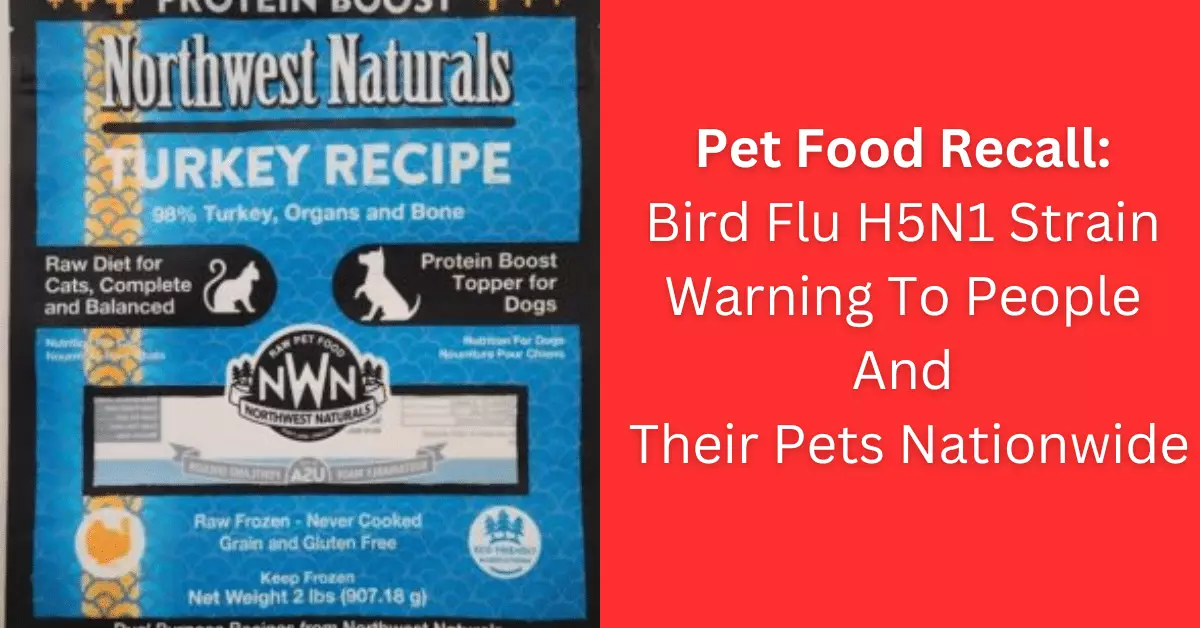The recent alert issued by the Oregon Department of Agriculture (ODA) regarding the H5N1 strain of the Highly Pathogenic Avian Influenza (HPAI) found in a pet food brand has sent ripples of concern through pet owners and public health officials alike. This warning was brought to light following the tragic case of an indoor cat in Washington County that contracted the virus after consuming Northwest Naturals brand Turkey Recipe raw and frozen pet food, subsequently leading to its death. The situation serves as a poignant reminder of the potential risks associated with feeding pets raw meat products, highlighting the delicate balance between pet nutrition and the safety of animal feed.
Testing performed by the U.S. Department of Agriculture’s (USDA) National Veterinary Services Laboratories confirmed that the H5N1 virus identified in the pet food was the same as that found in the deceased cat. Dr. Ryan Scholz, the ODA State Veterinarian, expressed confidence that the pet contracted the virus strictly through its diet, as it had no known exposure to the virus in its environment. This alarming connection underscores the importance of transparency in pet food production and the potential health implications of contaminated products reaching consumers.
As a result of these findings, Northwest Naturals, a company based in Portland, Oregon, is taking substantial precautionary measures by voluntarily recalling its 2lb Feline Turkey Recipe raw pet food. The recall affects specific products with “Best if used by” dates of 05/21/26 B10 and 06/23/2026 B1, which were distributed across 11 states, as well as British Columbia in Canada. Pet owners are urged to dispose of any affected product and contact retailers for refunds, but the recall may not mitigate the anxiety felt by consumers regarding the safety of raw pet food products.
In light of the incident, the Oregon Health Authority (OHA) has begun monitoring individuals who had close contact with the affected cat for any flu-like symptoms, although it is reported that there have been no confirmed human cases linked to this outbreak as of yet. The OHA, in collaboration with the ODA, has adopted a One Health approach to explore human exposure to animal diseases such as avian influenza. This multifaceted perspective acknowledges the interconnectedness of human, animal, and environmental health, emphasizing the necessity of proactive surveillance strategies to prevent further cases.
Despite previous confirmations of HPAI in various animal populations, the risk of human transmission remains low in Oregon. Nevertheless, health experts continue to urge the public to observe considerable caution regarding animal interactions and food consumption practices, particularly with raw or undercooked animal products, which can harbor harmful pathogens.
Given the potential dangers linked to raw pet food, it becomes imperative for pet owners to educate themselves on safe pet feeding practices. Authorities recommend several key precautions: avoiding raw or undercooked meat, steering clear of unpasteurized dairy products, limiting contact with sick or deceased animals, and ensuring proper hygiene measures—such as handwashing after handling raw food or animals. These simple yet effective steps can substantially reduce the risk of disease transmission to both pets and their owners.
The case also highlights the necessity for further public awareness surrounding the feeding of raw diets to pets. While many pet owners choose raw diets believing they provide superior nutrition, they may inadvertently expose their animals—and themselves—to serious health risks. Raw meat can harbor not only HPAI but also other notorious pathogens like Salmonella, Listeria, and E. coli. Cooking meat is the most reliable method for eliminating these threats, while raw dairy can also pose similar dangers if not properly treated to eliminate disease-causing germs.
This incident serves as a vital wake-up call for pet owners, especially those who prioritize raw diets for their animals. As the situation develops, the continued collaboration between state and federal health authorities to monitor animal and public health is essential. Only through diligent adherence to established guidelines and increased awareness of food safety can both pets and humans thrive in healthy environments, free from the risks posed by disease-causing pathogens. The interconnectedness of human and animal health must remain front and center in the discussions surrounding public health to mitigate future risks associated with zoonotic diseases.


Leave a Reply